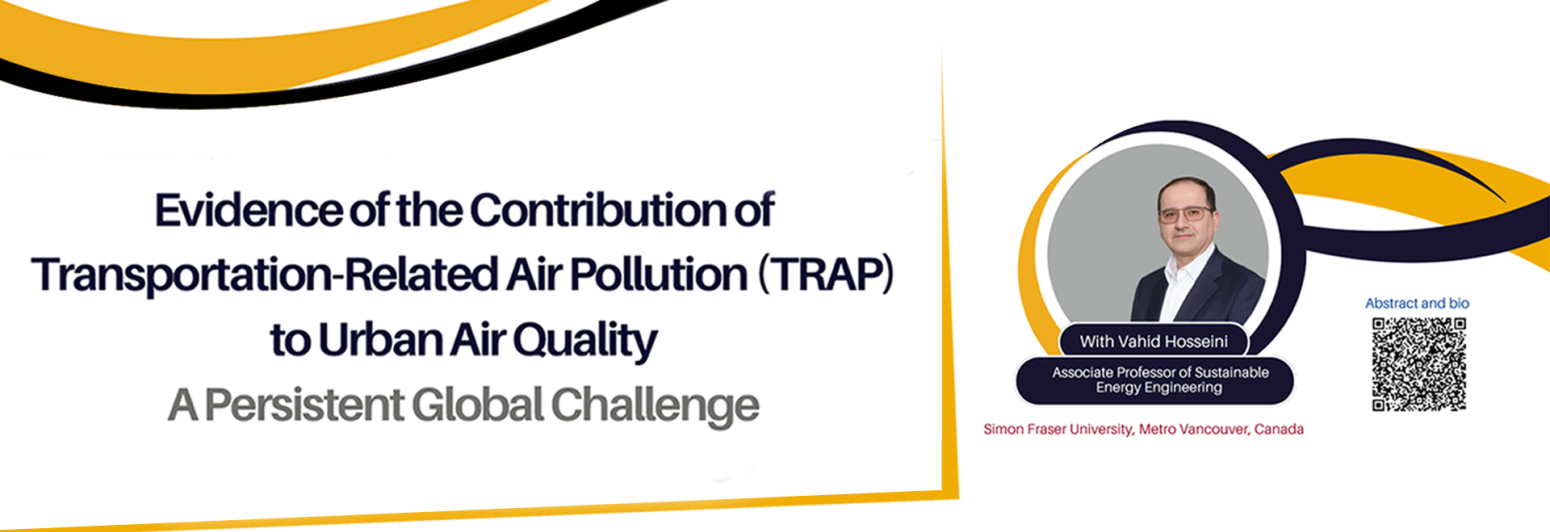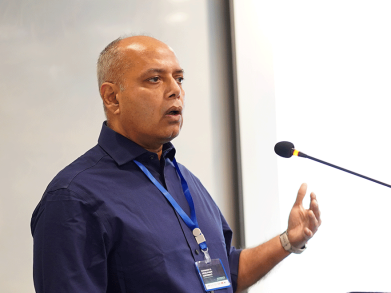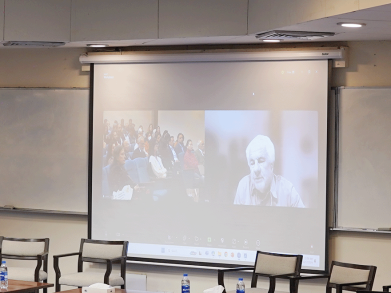
September 3, 2025
This talk explores how transportation-related air pollution (TRAP) shapes urban air quality and why it continues to pose a persistent global challenge. It will be of particular interest to researchers and faculty working in transportation, energy, sustainability, and emission-reduction strategies in Lahore and beyond.
About the Speaker:
Dr. Vahid Hosseini is an Associate Professor in Sustainable Energy Engineering at Simon Fraser University (SFU), Canada. He earned his PhD from the University of Alberta in 2008 in Mechanical Engineering with a focus on combustion and emissions. Prior to joining SFU in 2021, he served as a Professor of Mechanical Engineering at Sharif University of Technology in Tehran, Iran. Dr. Hosseini’s research focuses on the measurement and modeling of transportation-related air pollution. He has held leadership roles in air quality management, including directing the Tehran air quality monitoring network. He is currently the Lead for Transportation-Related Air Pollution (TRAP) at the United Nations University, Institute for Water, Environment and Health (UNU-INWEH). He serves as a consultant to the World Bank Group on air pollution mitigation projects in Nepal and Pakistan. He has published over 60 peer-reviewed journal articles and supervised approximately 80 Master’s and PhD students across multiple academic institutions.
Abstract:
Transportation accounts for approximately one-third of global greenhouse gas emissions. In urban environments, road transportation is a major contributor to air pollution. However, the extent of its contribution varies significantly across cities, influenced by factors such as traffic patterns, fleet composition, meteorological conditions, and topography. This presentation highlights a range of research methodologies and findings aimed at quantifying TRAP emissions and their contribution to urban air quality. Approaches include emission inventory development, integrated chemical transport modeling, source apportionment analysis, portable emissions measurement systems (PEMS), laboratory-based testing, and remote sensing. Case studies from cities including Tehran (Iran), Edmonton, and Vancouver (Canada) will be presented to illustrate the variability in TRAP sources and impacts. These insights inform the need for region-specific decarbonisation strategies that not only reduce greenhouse gas emissions but also deliver significant co-benefits for urban air quality.



















